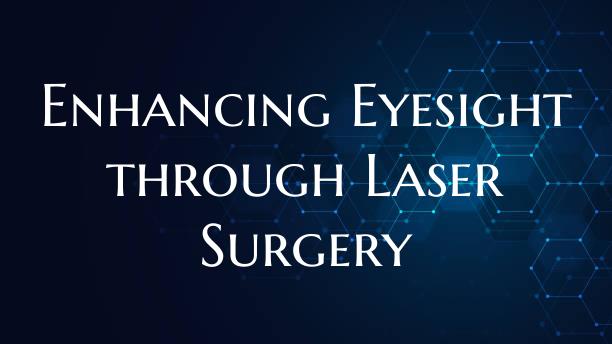
Enhancing Eyesight through Laser Surgery
Introduction: Enhancing eyesight through laser surgery has become a popular option for individuals looking to reduce or eliminate their dependence on glasses and contact lenses. Laser eye surgery, also known as refractive surgery, is a safe and effective procedure that can correct a variety of vision problems. This article explores the benefits, procedure, and considerations associated with enhancing eyesight through laser surgery.
Benefits of Laser Eye Surgery: One of the primary benefits of laser eye surgery is improved vision without the need for corrective eyewear. This can greatly enhance an individual's quality of life by providing clear vision for daily activities such as driving, working, and participating in sports. Laser surgery can correct refractive errors such as nearsightedness, farsightedness, and astigmatism, leading to sharper vision and reduced reliance on glasses or contacts. Additionally, many patients experience fast recovery times and minimal discomfort after the procedure, allowing them to resume normal activities quickly.
Procedure Overview: Laser eye surgery involves reshaping the cornea, the clear front part of the eye, to correct vision problems. The most common types of laser surgery include LASIK (Laser-Assisted in Situ Keratomileusis) and PRK (Photorefractive Keratectomy). During the procedure, a laser is used to remove microscopic amounts of tissue from the cornea, allowing light to focus correctly on the retina at the back of the eye. The entire process is usually completed in less than 30 minutes per eye and is performed on an outpatient basis.
Considerations before Laser Eye Surgery: Before undergoing laser eye surgery, individuals should consult with an eye care professional to determine if they are good candidates for the procedure. Factors such as age, overall eye health, and the stability of vision prescription are important considerations. It is essential to discuss any pre-existing conditions, medications, or lifestyle factors that may affect the outcome of the surgery. Additionally, patients should be prepared for post-operative care instructions, including the use of prescription eye drops and follow-up appointments to monitor healing and visual acuity.
Conclusion: Enhancing eyesight through laser surgery can be a life-changing decision for individuals seeking improved vision and freedom from glasses or contact lenses. With advancements in technology and experienced eye care professionals, laser eye surgery offers a safe and effective solution for correcting refractive errors. By understanding the benefits, procedure, and considerations associated with laser surgery, individuals can make informed choices to enhance their eyesight and enjoy clear vision for years to come.